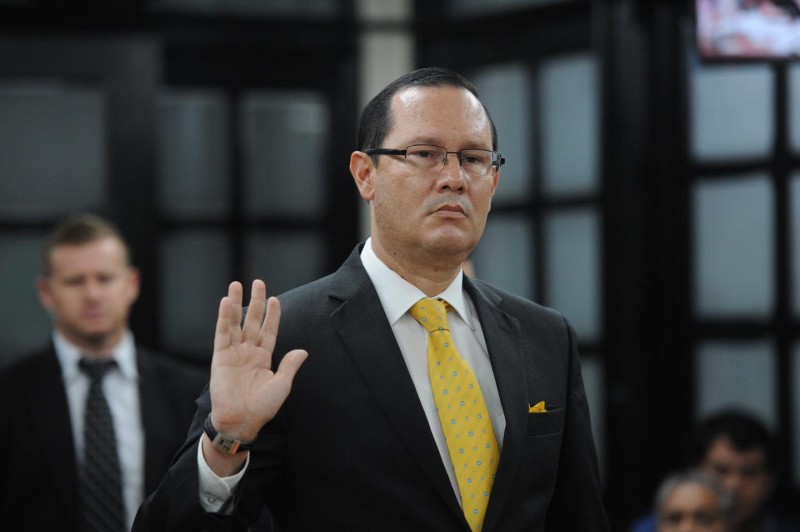Reported by
Costa Rica’s judicial police have arrested a former security minister and Supreme Court justice on drug trafficking charges, following an extradition request from the U.S.
Celso Gamboa Sánchez, the 49-year-old ex-minister and justice, was detained alongside suspected accomplice Edwin López Vega, judicial police director Randall Zúñiga said in a video statement released Monday.
According to Zúñiga, the U.S. Drug Enforcement Administration (DEA) has requested Gamboa’s extradition to Dallas, Texas, where he is expected to face charges related to international drug trafficking.
Gamboa held several high-ranking positions during his career, beginning as a prosecutor in the Caribbean province of Limón. He later served as deputy minister of security under President Laura Chinchilla, who also appointed him to lead the Intelligence and Security Directorate (DIS). In 2014, he was named minister of security by President Luis Guillermo Solís, but resigned a year later to become deputy attorney general. In 2016, he was appointed as a judge in the Supreme Court of Justice, only to be removed two years later.
This is the second time López has been arrested. The alleged accomplice, also known by the alias “Pecho de Rata,” was previously imprisoned for drug trafficking and released in December 2023 after serving an eight-year sentence. He was convicted for his involvement in a smuggling attempt of more than 300 kilograms of cocaine.
Gamboa’s arrest comes just one month after Costa Rica amended its constitution to permit the extradition of its own nationals. If extradited, Gamboa and López would become the first Costa Rican citizens to be handed over to another country under the new legal framework.
"We hope the process is completed and they can arrive in the U.S. and face the charges against them there," Zúñiga said in the video statement.
Prior to the recent constitutional amendments, extradition of citizens in Costa Rica was a restrictive, if not inoperable, process. Although the country had extradition treaties with nations including the United States, Colombia, and Spain, its constitution barred the extradition of Costa Ricans for crimes committed outside its national territory.






